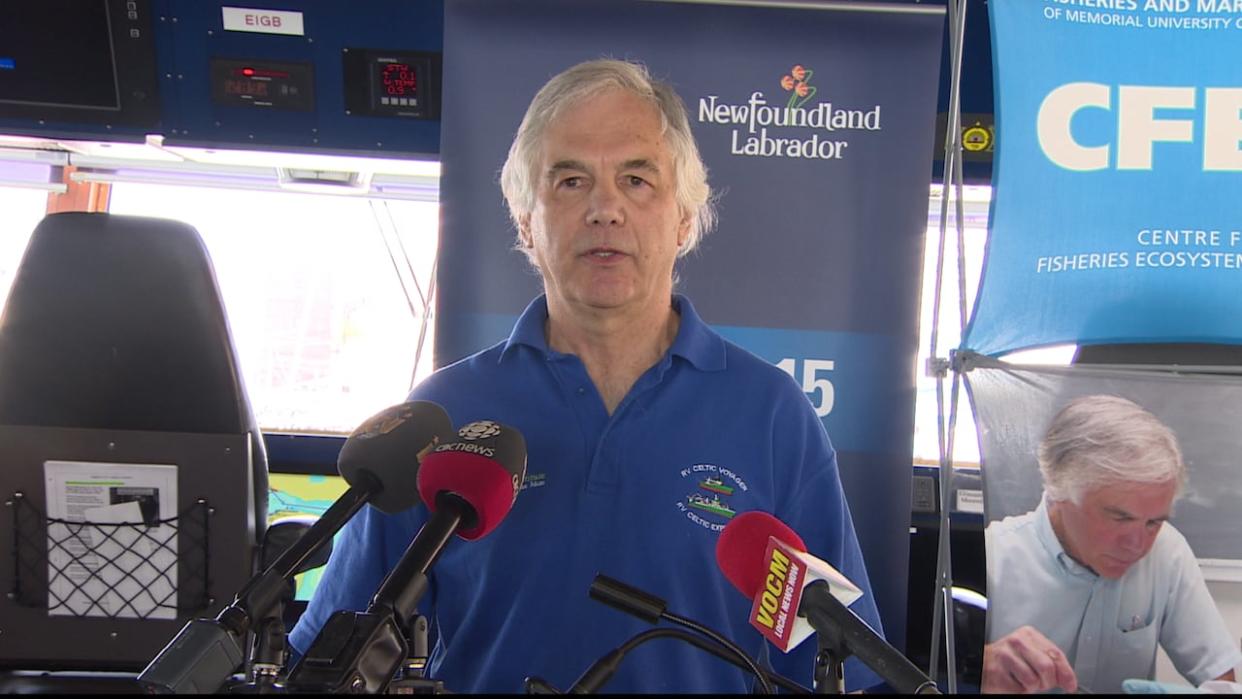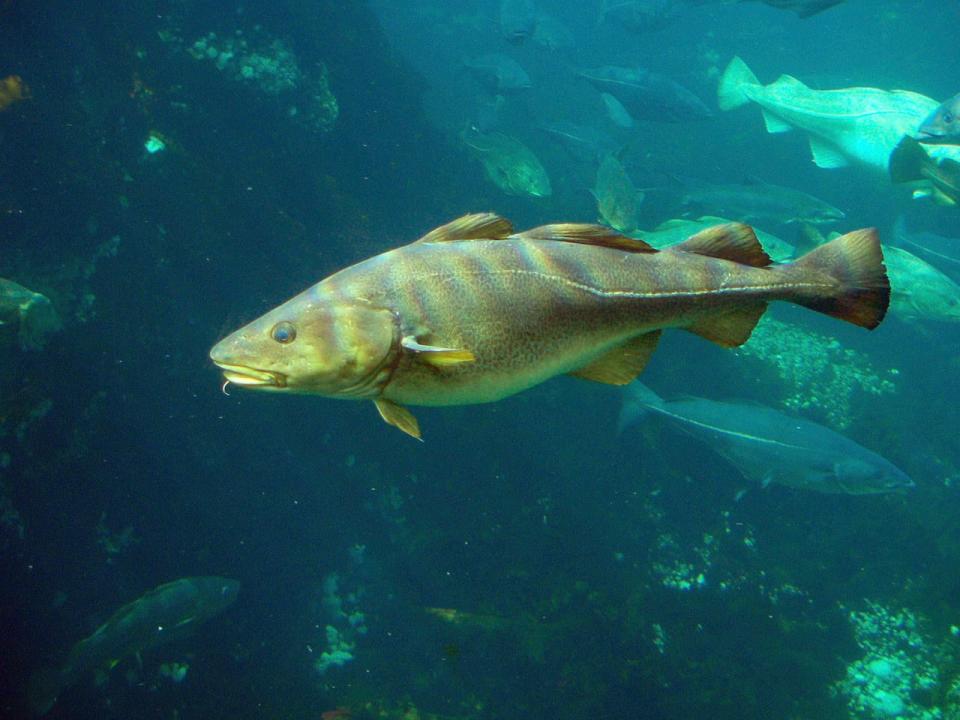New cod migration data suggests commercial fishing could return someday, says researcher


Fisheries scientist George Rose says he's 'not ready to throw in the towel' on the northern cod stock. (CBC)
The co-author of a new study in the Canadian Journal of Fisheries and Aquatic Sciences says Newfoundland and Labrador's northern cod have returned to their historical migration patterns — with potentially major implications for the provincial fishery.
George Rose, co-author of the study with the Institute for the Oceans and Fisheries at the University of British Columbia, says the new data suggests a return to the commercial cod fishery one day is possible.
"The research shows that these fish can do this," said Rose, "I'm not willing yet to throw in the towel on this stock."
The study followed 90 large northern cod equipped with tags that transmitted data to satellites for over a year. Researchers found northern cod have re-established historical migration patterns and confirmed capelin can influence their timing and duration in inshore waters.
Historical migration pattern
Historically, the Labrador-East Newfoundland cod stock would move southward and westward with the Labrador current. The stock, consisting of six spawning groups, originally extended from northern Labrador to the north of the Grand Bank.
The cod would then migrate inshore, supporting the province's fisheries for hundreds of years. The stock also caught the attention of Europeans who first settled in the early 1800s. However, overfishing led to the near extinction of northern cod and a moratorium in 1992.
It also was well known by fishermen that shortly after the capelin came inshore, so would the cod shortly after.
Scientists also believe overfishing caused genetic changes, such as earlier maturation and less growth, for a survival advantage. Along with other environmental and behavioural changes, they believed this would end the migration pattern completely.
New findings
Now tagging technology have given scientists a stronger understanding of cod migration patterns.

A new research study that followed 90 northern cod has found that they've returned to their historical migration patterns. (Hans-Petter Fjeld)
The small tags used in Rose's research, which can easily be attached to cod, can store data for up to a year and transmit it to satellites.
Rose said he was able to collect a lot of data on the cod's migration patterns and compare it with historical data.
"The migration patterns have been re-established almost exactly the way they were historically," said Rose.
He says the cod can rebound and re-establish its spatial patterns, which is essential to its productivity. He also found its migration had the same historical dependence.
Industry revitalization
In October, the Department of Fisheries and Oceans used a new cod assessment model to determine northern cod stock has been out of the critical zone since 2016.
Fish stock has three zones: healthy, cautious and critical. When a stock is in the critical zone, fishing needs to be kept at the lowest level possible.
The old cod assessment model looked at data starting in 1982 and set the reference point at 800,000 tonnes. The new model's reference point uses data starting in 1954 and is set at 315,000 tonnes.
The new reference point reclassifies northern cod into the cautious zone, according to DFO.
Some producers hoped it would mean an end to the commercial moratorium, but Rose is skeptical of the DFO's new reference point. He doesn't think the stock's historic productivity can be supported by the new low reference point.
"It may be misleading to industry and to management about how we go forward with that stock," he said.
But he still believes there can be a return of the commercial cod fishery in the future.
"The people who were more on the doomsayer side," said Rose, "saying that this stock is not capable of coming back to anything like it was... that's just been proven wrong."
Download our free CBC News app to sign up for push alerts for CBC Newfoundland and Labrador. Click here to visit our landing page.


